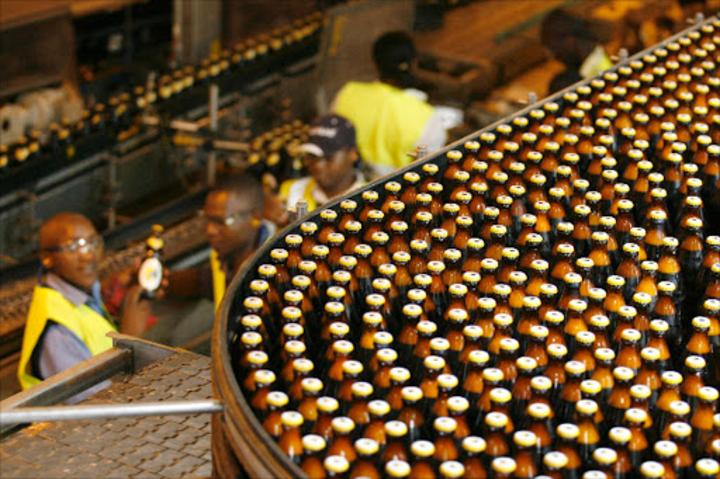Africa-Press – Kenya. Less than two weeks since pump prices of fuel hit a historic high, causing a countrywide uproar, consumers in Kenya are facing yet another increase on at least 31 products.
This comes with the adjustment of the excise duty rate by the Kenya Revenue Authority (KRA), a move that will force manufacturers and importers to pass costs to consumers.
It will see fast-moving excisable goods such as fuel, beer, cigarettes, bottled water, energy drinks, and juice cost more from October 1, with consumers who are reeling from the effects of Covid-19, amid reduced spending power, forced to dig deeper into their pockets to access these products.
In a notice issued on August 10, Kenya Revenue Authority (KRA) Commissioner General said the taxman would adjust the rate of excise duty using 4.97 per cent, as the average inflation rate covering the 2020/21 financial year.
PRICE CHANGE
As a result of the upcoming increases, consumers will pay Sh5.77 more for a litre of beer while prices for spirits will rise by up to Sh13.20.
A litre of petrol will rise by Sh1.09, while diesel and kerosene will increase by Sh0.566 per litre each.
The price of a packet of 20 cigarettes will increase by Sh3.20 in line with the rise in excise tax from Sh66.20 to Sh69.40, while the duty on bottled water will rise from Sh3.31 to Sh3.47 per litre.
This will force players such as the East African Breweries Limited (EABL), BAT and other local manufacturers to adjust their pricing upwards to remain profitable.
It will come barely three months after the beer manufacturer increased prices of its beer and spirits prices by between Sh5 and Sh20.
Since the introduction of the Excise Duty Act in December of 2015, beer excise has increased from Sh100 per litre to Sh116 per litre (16% increase), wine from Sh150 per litre to Sh198.34 per litre (32% increase) and spirits from Sh175 per litre to Sh 265.50 (52% increase).
These changes in alcohol taxes came off the back of a massive 43 per cent excise tax increase that was effected in 2015, with Kenya having the highest tax regime compared to neighbouring country where products have remained cheaper.
Uganda and Tanzania, for instance, have maintained excise duty increases at nine per cent , 11 per cent and 15 per cent for beer, wines and spirits respectively on average within the same period.
The two countries have three and five times less excise rates than in Kenya for beer respectively.
“The inflation adjustment will certainly have an impact since this tax in the upcoming adjustment has to be passed on to consumers of alcoholic beverages over time,” EABL replied to an inquiry by the Star, on the impending price increase.
The company however said it has not arrived at a decision yet but will decide once the intended adjustment by the government has been effected.
Over the last few years, affordability challenges facing cigarette consumers have heightened, impacting demand for tobacco products, BAT notes, with consumer pockets being stretched due to adverse impacts of Covid- on disposable income.
This has been exacerbated by the five per cent inflationary increase in excise duty on tobacco products in 2020, in addition to the dramatic 20 per cent increase in excise duty rates in 2019.
“These frequent and steep excise increases trigger unsustainable increases in cigarette retail prices, which consumers continue to grapple with. In essence, the compounded tax increase has run ahead of overall general consumer price inflation,” management replied to an email inquiry by the Star.
Consumers will also pay more for water, a basic need under food, barely three months since it was hit by other taxes leading to an increase of by up to Sh10 for bottled products.
They a 10 per cent excise tax on articles of plastics which affects bottles.
Water is also taxed excise duty of Sh6.03 per litre up from Sh5.70, which is among a raft of tax measures introduced under the Finance Act 2021 that manufacturers say were not subject to public participation.
According to the Water Bottlers Association of Kenya (WBAK) chairperson Henry Kabogo, the excise tax on articles of plastic, which include labels, seals and wrapping material, increased the price of bottles by a margin of 12 per cent.
“The consumer should expect a final increase on bottled water price,” Kabogo said.
The Kenya Association of Manufacturers (KAM) has faulted the government for the continued introduction of policies that increase the cost of doing business for local industries.
According to the KAM Manufacturing barometer for quarter 2, 2021, at least 64 per cent of surveyed manufacturers foresee a price increase of their manufactured goods, attributed to among others, imposition of taxes that will drive up the price of finished goods.
“The sector is faced with unpredictable fiscal and regulatory policies focused on raising revenue in the short term, undermining all efforts towards sustainable economic growth,” KAM chief executive Phyllis Wakiaga said.
She said this not only discourages industry to scale up but also leads to investors seeking more suitable, predictable and secure markets to relocate their businesses.
Manufacturers are expected to pass down the extra cost of production to consumers, whose spending power has been crippled by the ongoing pandemic.
The manufacturing industry is amongst the hardest hit sectors of the economy by the impacts of the Covid, with the 2.6 per cent growth registered in 2019 dropping to -1per cent in 2020–Economic Survey 2021.
ILLICIT TRADE
An increase in taxes of excisable goods is expected to push more traders to short cuts mainly by engaging in illicit trade, which will see the government miss-out on potential revenues.
Third-party research indicates that the illicit cigarette incidence has grown from an estimated two per cent in 2015 to an estimated 23 per cent as at the first quarter of 2021. This translates to an estimated annual loss of over Sh4 billion in government revenues.
Traders at Kenyan border towns have traditionally fetched their stocks from neighbouring countries where products are cheaper, with the government missing on revenues.
For instance, the price of beer in Kenya is five times that of beer in Uganda and Tanzania which has led to increased entry of contraband into Kenya, and high enforcement cost for government which does not adequately cover the porous borders.
“The reality is that increased tobacco excise doesn’t translate to increased government revenues in Kenya, but instead drives up illicit trade. This approach is therefore untenable as it punishes legitimate manufacturers, compromising government revenues,” BAT said.
Stop Crime Kenya (StoCK) has warned that an increase in excise rates will fuel illicit trade in the country .
With a secretariat at the Consumers Federation of Kenya (Cofek), StoCK is campaigning against criminals who make a fortune smuggling and selling illicit goods.
“Kenya’s high taxes are already to blame for the smuggling of a range of goods from neighbouring countries where rates are dramatically lower,” StoCK chairman Stephen Mutoro.
Illicit trade costs Kenya an estimated Sh153 billion a year in lost taxes and robs the state of resources needed for vital services.
It also funds other criminal enterprises, breeds corruption and finances extremism across the region.
Mutoro added that illicit products put the lives of citizens at risk and destroy legitimate businesses and honest jobs.
“While enriching criminals, they reduce the revenue that government needs to deliver basic services to the poor and vulnerable, such as old-age grants, schools, clinics and a vaccine roll-out programme to deal with the Covid-19 pandemic,” he said.
Two Kenyans have petitioned court to stop the impending increase in excise duty.
Isaiah Odando and Wilson Yata argue that the decision, which is slated to take effect on October 1, will put pressure on cost of living.






